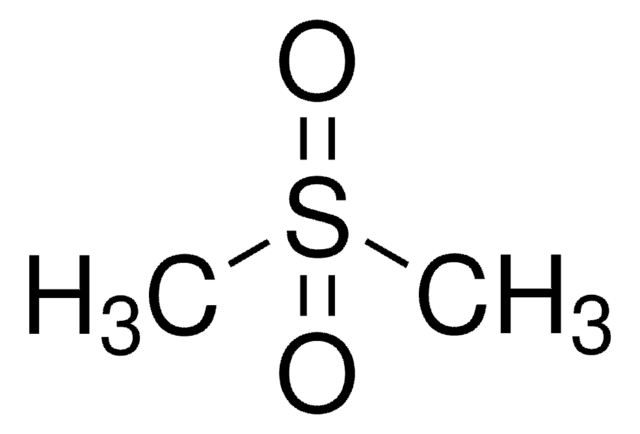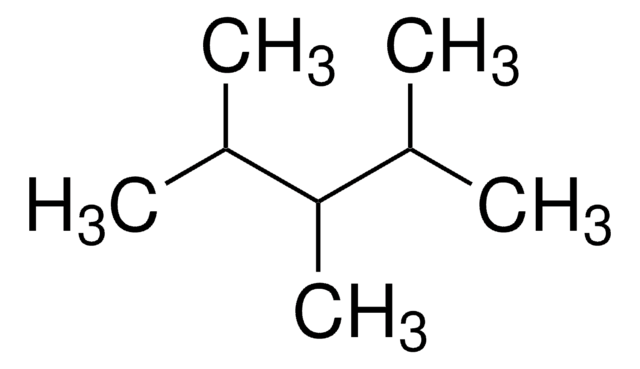PHR1915
2,2,4-Trimethylpentane (Isooctane)
Pharmaceutical Secondary Standard; Certified Reference Material
Synonym(s):
2,2,4-Trimethylpentane, Isooctane
About This Item
Recommended Products
grade
certified reference material
pharmaceutical secondary standard
Quality Level
vapor density
3.9 (vs air)
vapor pressure
41 mmHg ( 21 °C)
CofA
current certificate can be downloaded
autoignition temp.
745 °F
expl. lim.
6 %
packaging
ampule of 3x1.2 mL
technique(s)
HPLC: suitable
gas chromatography (GC): suitable
refractive index
n20/D 1.391 (lit.)
bp
98-99 °C (lit.)
mp
−107 °C (lit.)
density
0.692 g/mL at 25 °C (lit.)
application(s)
pharmaceutical (small molecule)
format
neat
storage temp.
2-30°C
SMILES string
CC(C)CC(C)(C)C
InChI
1S/C8H18/c1-7(2)6-8(3,4)5/h7H,6H2,1-5H3
InChI key
NHTMVDHEPJAVLT-UHFFFAOYSA-N
Looking for similar products? Visit Product Comparison Guide
General description
Application
Analysis Note
Other Notes
Footnote
Signal Word
Danger
Hazard Statements
Precautionary Statements
Hazard Classifications
Aquatic Acute 1 - Aquatic Chronic 1 - Asp. Tox. 1 - Flam. Liq. 2 - Skin Irrit. 2 - STOT SE 3
Target Organs
Central nervous system
Storage Class Code
3 - Flammable liquids
WGK
WGK 2
Flash Point(F)
10.4 °F - closed cup
Flash Point(C)
-12 °C - closed cup
Regulatory Listings
Regulatory Listings are mainly provided for chemical products. Only limited information can be provided here for non-chemical products. No entry means none of the components are listed. It is the user’s obligation to ensure the safe and legal use of the product.
FSL
Group 4: Flammable liquids
Type 1 petroleums
Hazardous rank II
Water insoluble liquid
ISHL Indicated Name
Substances Subject to be Indicated Names
ISHL Notified Names
Substances Subject to be Notified Names
JAN Code
PHR1915-1.2ML-PW:
PHR1915-3X1.2ML:
Choose from one of the most recent versions:
Certificates of Analysis (COA)
Don't see the Right Version?
If you require a particular version, you can look up a specific certificate by the Lot or Batch number.
Already Own This Product?
Find documentation for the products that you have recently purchased in the Document Library.
Customers Also Viewed
Our team of scientists has experience in all areas of research including Life Science, Material Science, Chemical Synthesis, Chromatography, Analytical and many others.
Contact Technical Service










